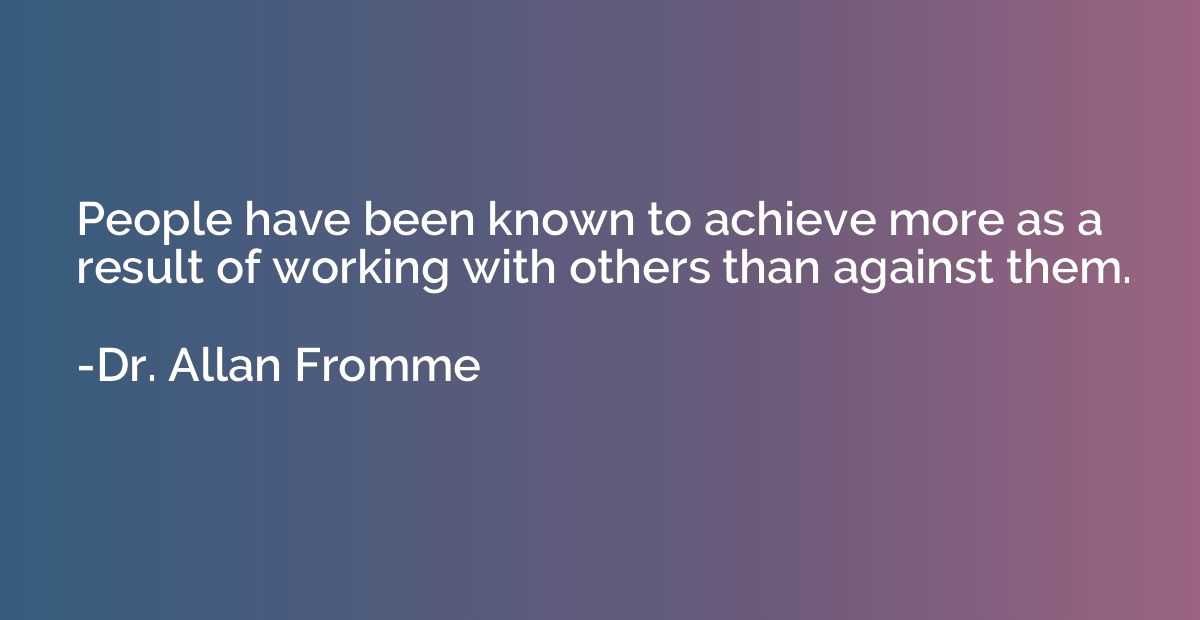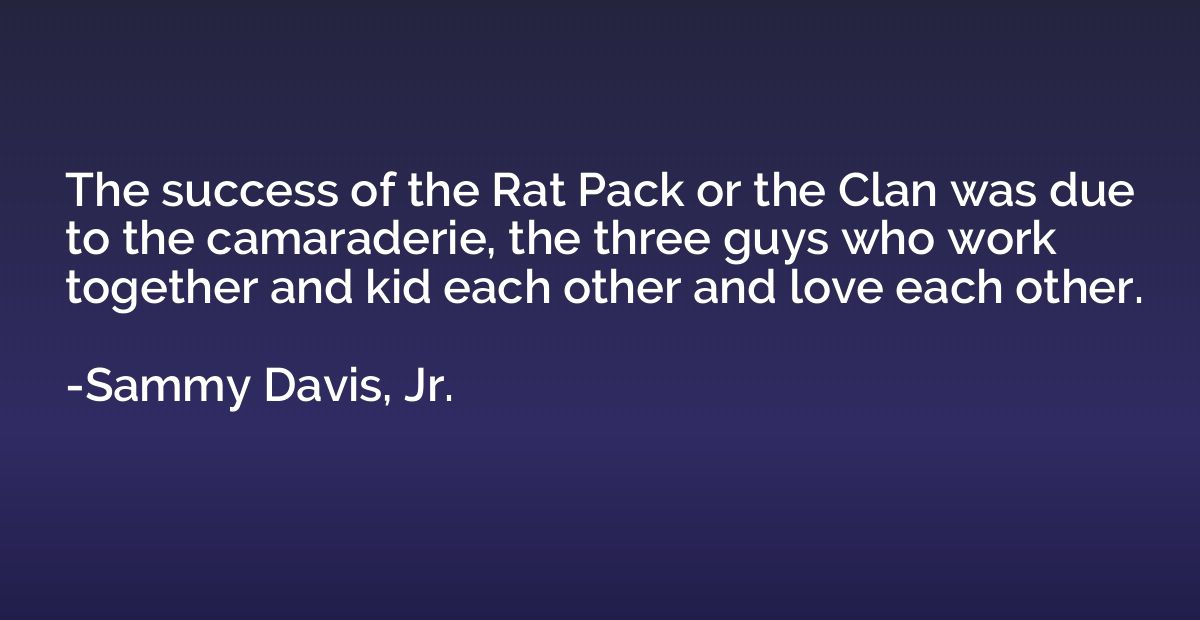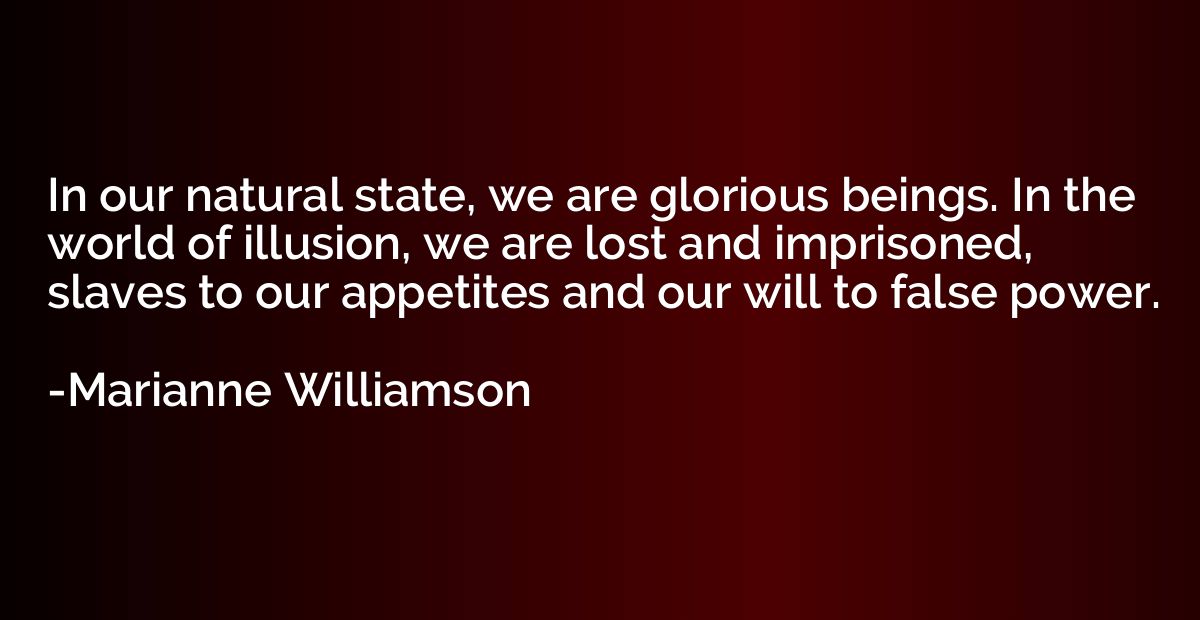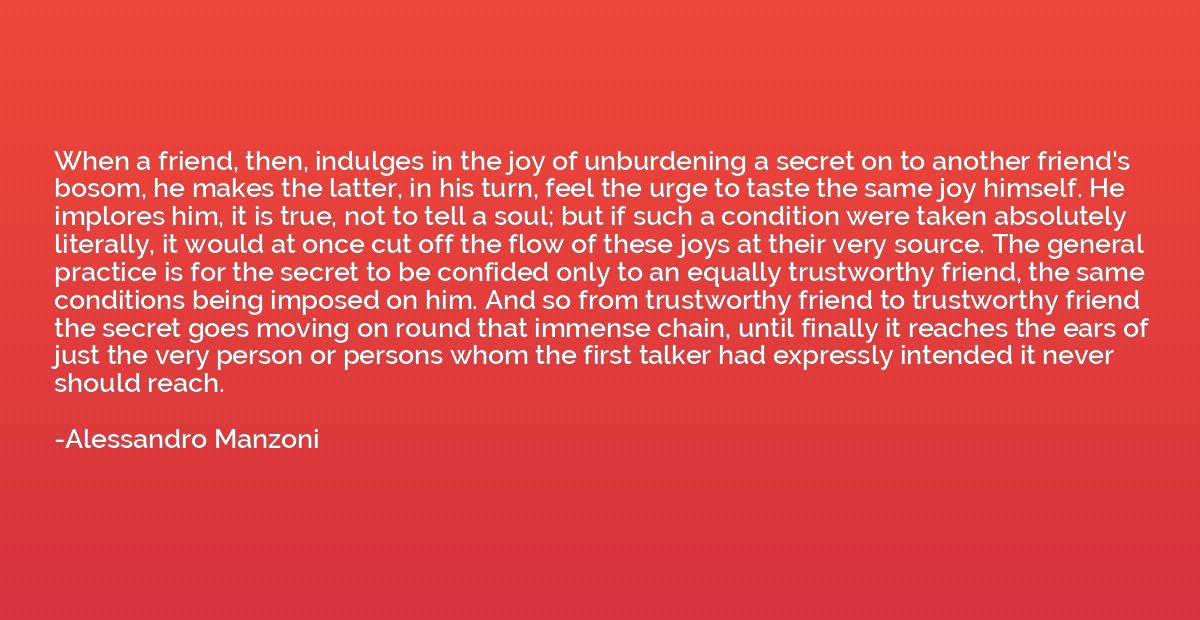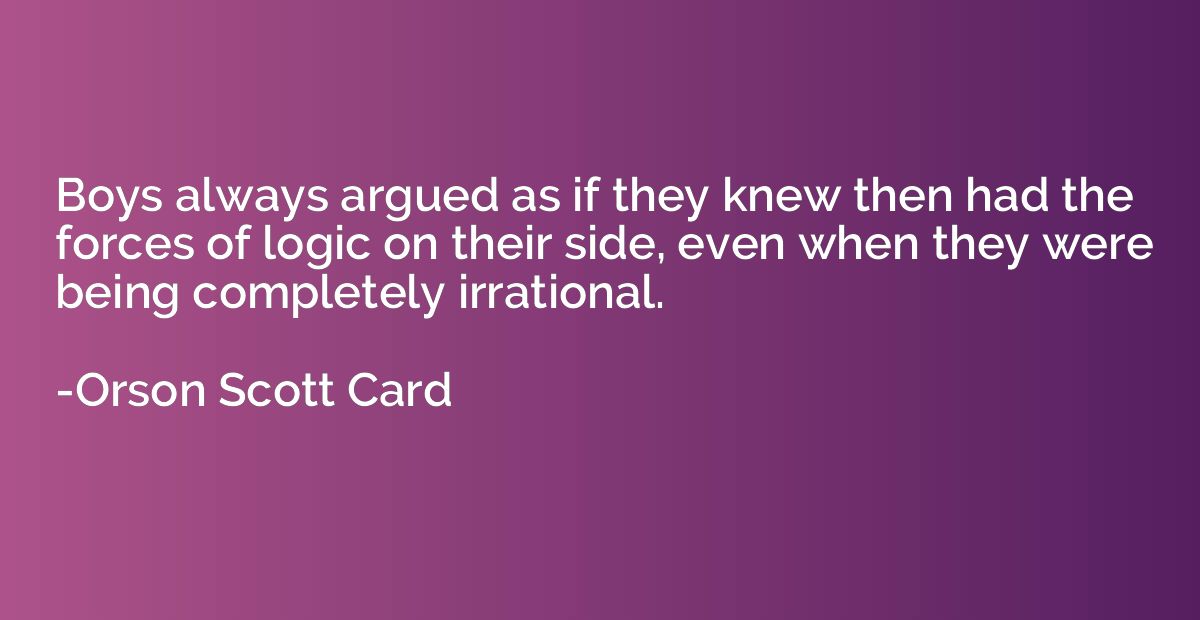Quote by Christopher Hitchens
In Sarajevo in 1992, while being shown around the starved, bombarded city by the incomparable John Burns, I experienced four near misses in all, three of them in the course of one day. I certainly thought that the Bosnian cause was worth fighting for and worth defending, but I could not take myself seriously enough to imagine that my own demise would have forwarded the cause. (I also discovered that a famous jaunty Churchillism had its limits: the old war-lover wrote in one of his more youthful reminiscences that there is nothing so exhilarating as being shot at without result. In my case, the experience of a whirring, whizzing horror just missing my ear was indeed briefly exciting, but on reflection made me want above all to get to the airport. Catching the plane out with a whole skin is the best part .) Or suppose I had been hit by that mortar that burst with an awful shriek so near to me, and turned into a Catherine wheel of body-parts and (even worse) body-ingredients? Once again, I was moved above all not by the thought that my death would 'count,' but that it would not count in the least.
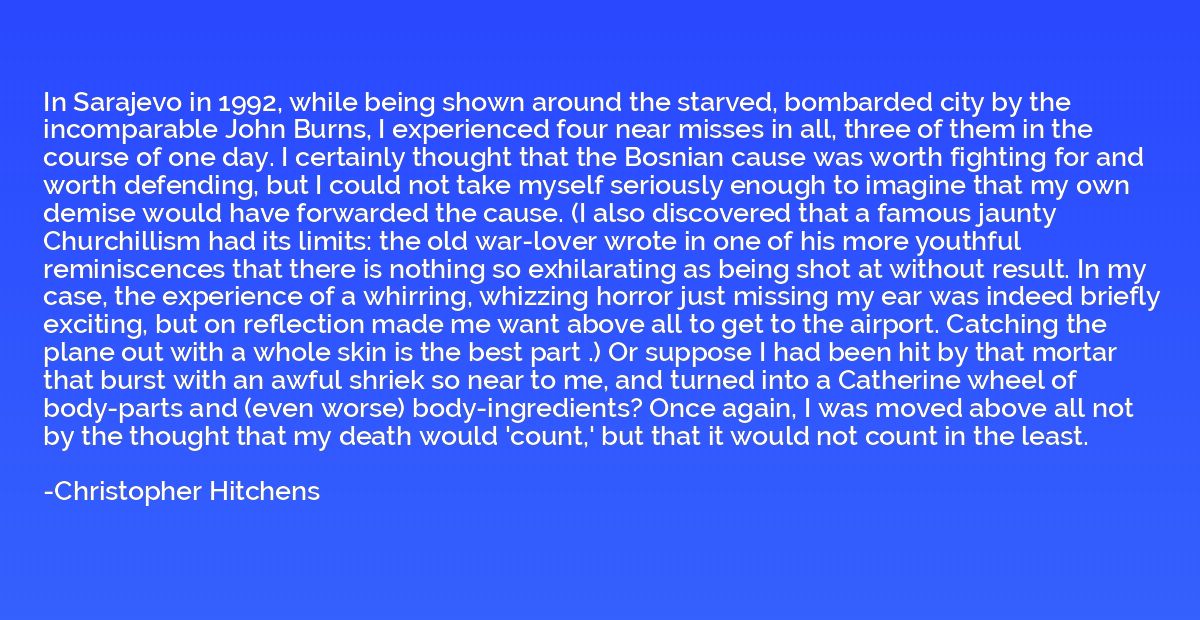
Summary
In this quote, the author reflects on their experience in war-torn Sarajevo in 1992. They acknowledge their belief in the cause and the importance of defending it but express that they couldn't take themselves seriously enough to believe that their own death would further the cause. The author also references a Churchill quote about the exhilaration of being shot at without being harmed, admitting that although the experience briefly excited them, it ultimately reinforced their desire to leave the dangerous situation. The fear of dying and the realization that their death would have no impact on the cause emerged as the primary concern for the author.




